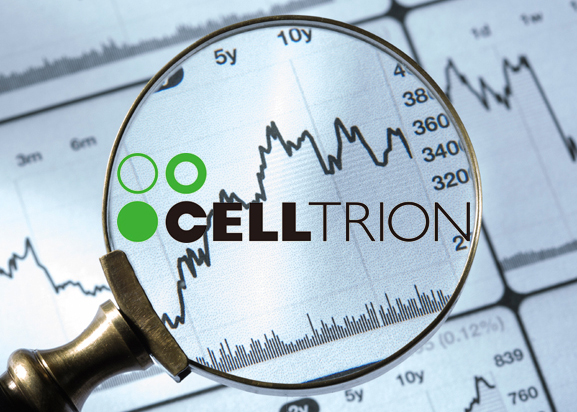The recent decision by Celltrion, Korea’s most successful biosimilar maker, to be listed on the Korea Stock Exchange (KRX) is attracting investors’ interests
On Monday, minority shareholders with equity of 3 percent or more presented a notice to Celltrion셀트리온 to hold an extraordinary shareholders’ meeting to discuss the company’s listing on the KOSPI (Korea Stock Price Index) market, obligating the management to hold the meeting and table the issue on Sept. 29.

If Celltrion is listed on the KOSPI market, the company is expected to get out of the “KOSDAQ discount,” as the expanded share of foreign and institutional shareholders would help to stabilize the transactions of the company’s shares, market watchers here say.
"People think the KOSDAQ market is unstable compared with the KOSPI market,” a stock analyst said. “The listing on the KOSPI market is highly likely to expand the equity shares of foreign and institutional investors.”
Korea United Pharm한국유나이티드제약 was the first drugmaker which moved from KOSDAQ to KOSPI market, in 2007. Its stock price has since risen to about 20,000 won ($14.9) per share from below 10,000 won. However, some analysts saw the move from the second to the first market failed to jack up the company’s stock price as much as expected.
"Such a move, however, could serve as the factor to push up the share prices of blue-chip companies,” the analyst said. “The tech-heavy KOSDAQ market, mostly composed of smaller firms, tends to fail to rise when KOSPI market rises and fall if the latter drops, in what market watchers describe as ‘KOSDAQ discount.’”
"If Celltrion moves to the KOSPI market, its transaction volume will increase, thanks in part to the institutional investors’ purchase of its stocks,” he added.
The criteria for a large shareholder subject to the imposition of capital gains tax will also change, to those with 1 percent or more of equity worth 2.5 billion or more in the KOSPI market from those with equity of 2 percent or more worth 2 billion or more in the KOSDAQ market.
Accordingly, largest shareholders who have stocks worth between 2 billion won and 2.5 billion won can be exempt from capital gains tax if only their equity stakes are less than 1 percent.
As the Korean Exchange doesn’t have separate procedures for transfer listing, Celltrion will go through the new listing process on the KOSPI market.
"Aside from quantitative qualifications, we will conduct qualitative screening, including corporate transparency and business continuity,” a KRX official said. “Newly listed firms will receive notification within 45 days of application. If they meet certain requirements, we can also send the results in 20 days through the fast-track process.”
The requirements to be blue-chip companies exempt from the screening of sustainability are those with equity capital of 400 billion won or more in the previous year (based on consolidated accounting), 700 billion won or more previous year sales, 500 billion won more in three-year average sales, 30 billion won or more in previous year’s net profits, and 60 billion won or more in the combined net profits of the last three years (on consolidated basis).
Celltrion met the criteria of paid-in capital with 2.1 trillion won in 2016, three-year average sale, with 503.6 billion won, the net profit, with 221.4 billion won, and the three-year combined net profit, with 551.4 billion won. But it failed to fulfill the criteria of the previous year’s sale, with 577.5 billion won, and will likely be exempt from the fast-track screening.

